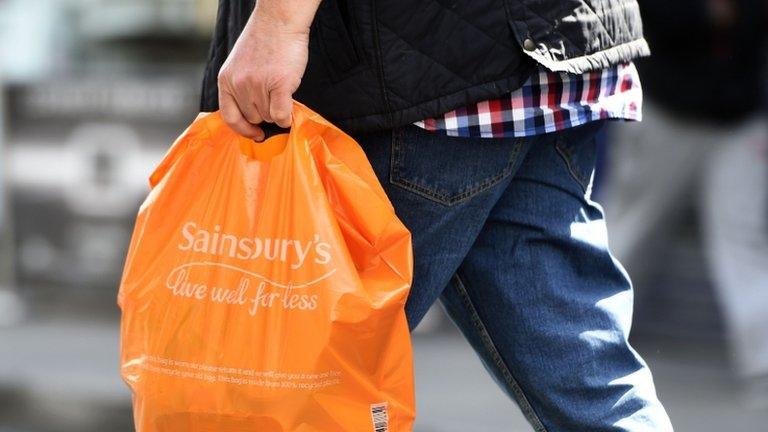Brexit: Food imports grace period 'could apply' to 15 NI companies
- Published
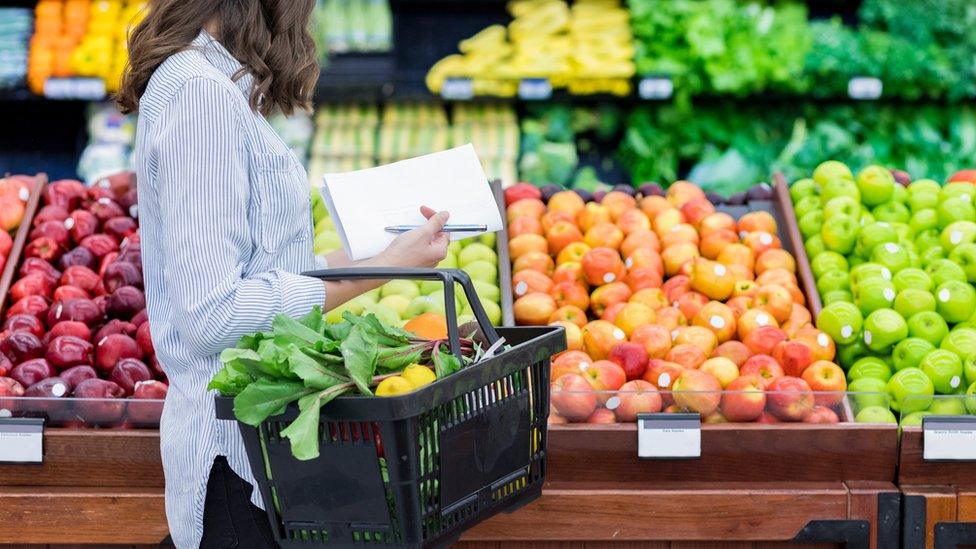
The agriculture minister has said he expects the grace period on rules around food imports from Britain to NI to apply to up to 15 companies.
Edwin Poots was appearing before a Stormont committee for the first time since he came out of isolation after contracting Covid-19.
He and senior officials gave MLAs a detailed briefing on the operation of the Northern Ireland Protocol.
It will take effect at the end of the Brexit transition.
At that point Northern Ireland will continue to follow EU rules on goods, including food, while the rest of the UK will not.
Mr Poots said an agreement between the UK government and the EU to apply flexibilities on food imports and chilled meats was still just a temporary reprieve.
He said it was imperative that the time was spent working out a long-term solution that would mitigate the impact.
Under the deal, companies moving most products made from meat, dairy and eggs from Britain to Northern Ireland will not need to produce complex and expensive Export Health Certificates for the first three months.
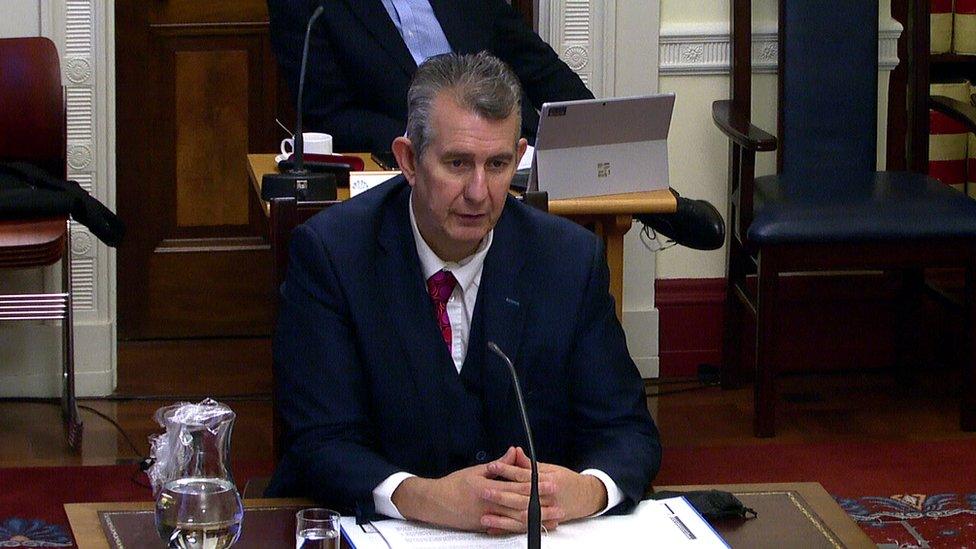
Edwin Poots was appearing before a Stormont committee for the first time since he came out of isolation after contracting Covid-19
And chilled meat, which is normally banned by the EU, can continue to enter for six months though it will need to be accompanied by EHCs.
But it's still not clear what will happen when those grace periods expire.
Mr Poots said his party had vociferously opposed the Northern Ireland Protocol, some of the rules of which he described as "complete nonsense".
But he conceded that it did provide Northern Ireland with some trading advantages with access to both the Great Britain and EU markets, especially in the case of a no-deal.
He said the challenge was to "ameliorate and mitigate" the parts of the protocol that were causing potential problems for things like the importation of potatoes and red meat from Great Britain for further processing here.
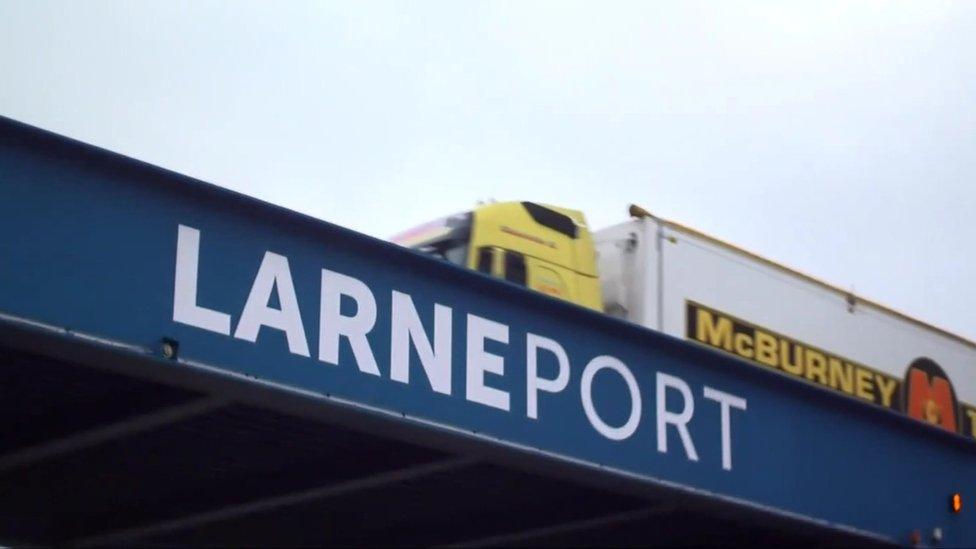
Mr Poots said there would be a relatively small number of checks at Belfast and Larne ports
"There is going to be a relatively small number of checks at Belfast and Larne to be perfectly honest," he said.
"Those checks will be relatively straightforward and will apply only to food, they will not apply to individuals, they will apply to food and animals.
"This is about protecting the single market, but nonetheless I believe we can put forward cogent rationale arguments as to how this can be done to protect the single market - does no violence to it whatsoever - but at the same time does not do violence to consumers in Northern Ireland who ultimately will foot the bill if we don't get these things resolved.
"I welcome that fact that the can has been kicked down the road a bit that we don't face this cliff edge on the first of January, but I don't want to be facing a cliff edge on the first of April and the first of July on these issues."

Brexit - The basics
Brexit happened but rules didn't change at once: The UK left the European Union on 31 January 2020, but leaders needed time to negotiate a deal for life afterwards - they got 11 months.
Talks are happening: The UK and the EU have until 31 December 2020 to agree a trade deal as well as other things, such as fishing rights.
If there is no deal: Border checks and taxes will be introduced for goods travelling between the UK and the EU. But deal or no deal, we will still see changes.


Related topics
- Published10 December 2020
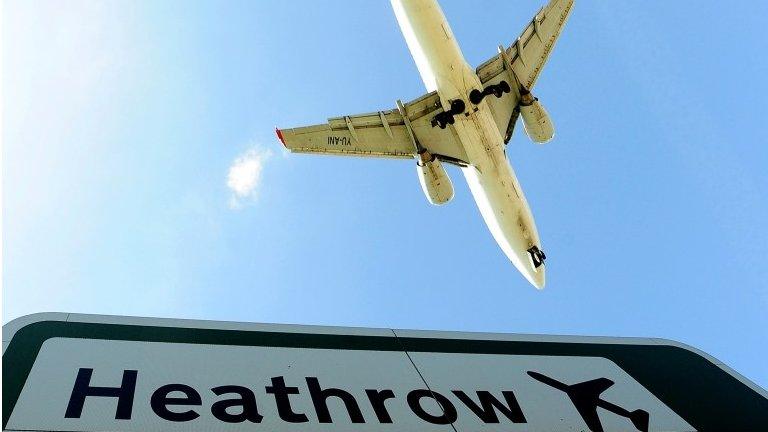
- Published9 December 2020
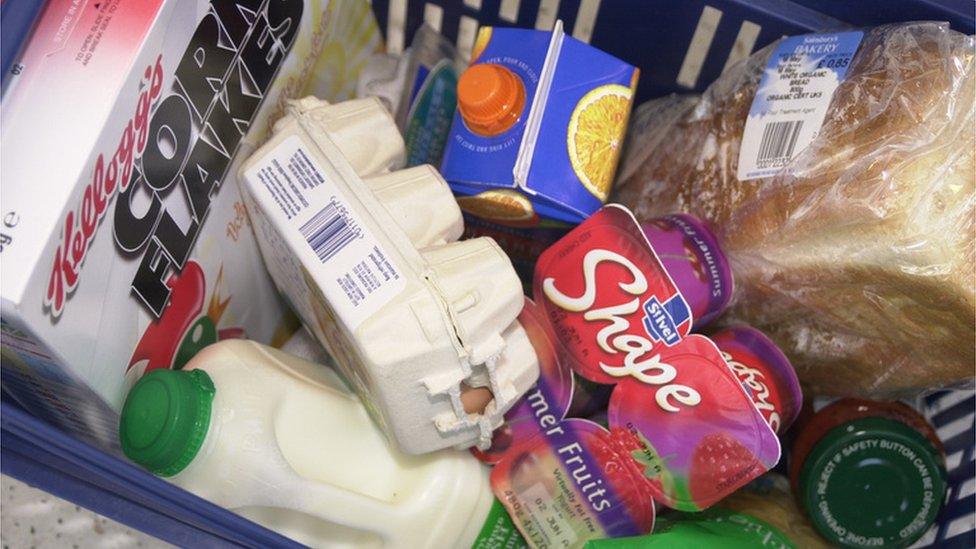
- Published9 December 2020
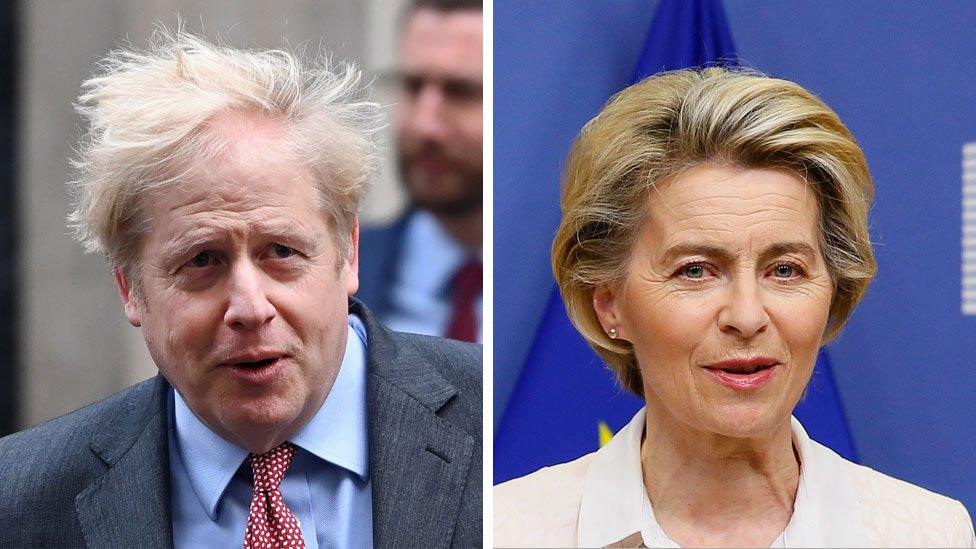
- Published13 December 2020
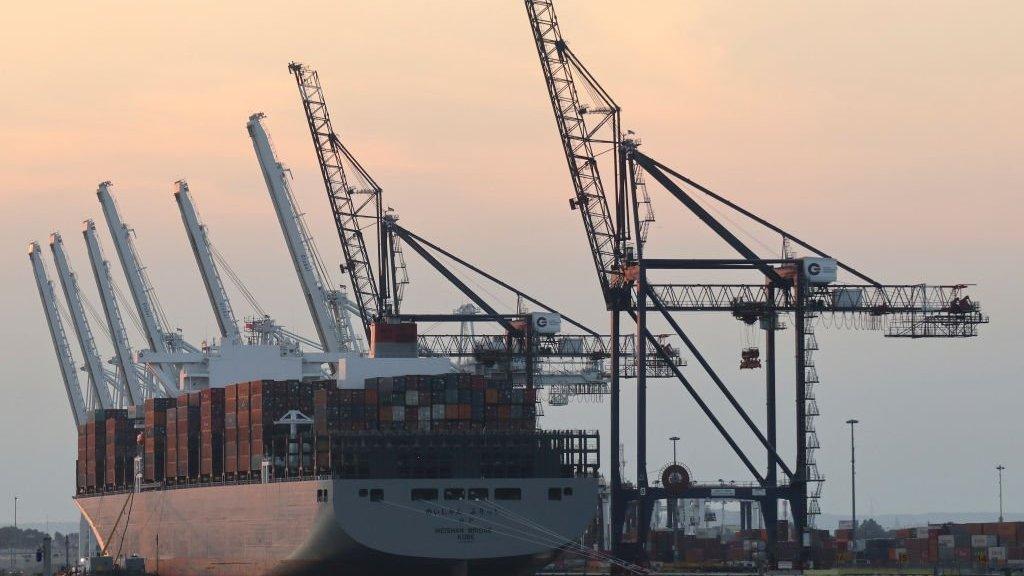
- Published8 December 2020
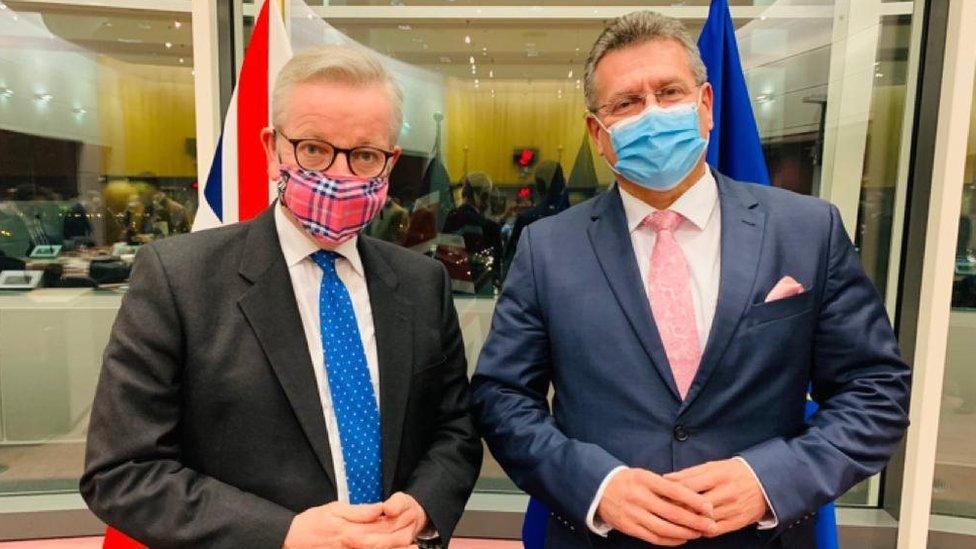
- Published2 February 2024

- Published6 November 2020
